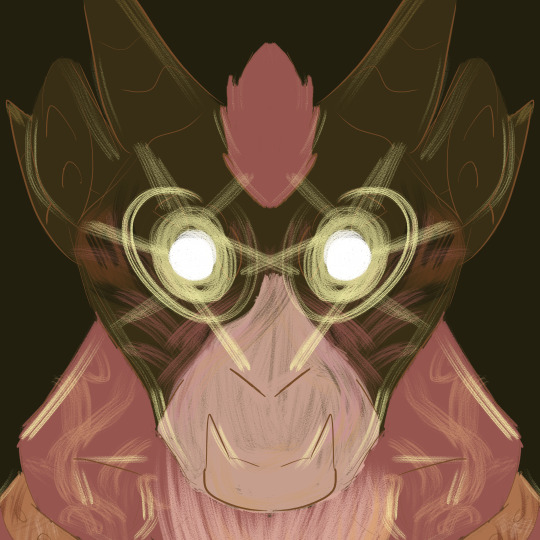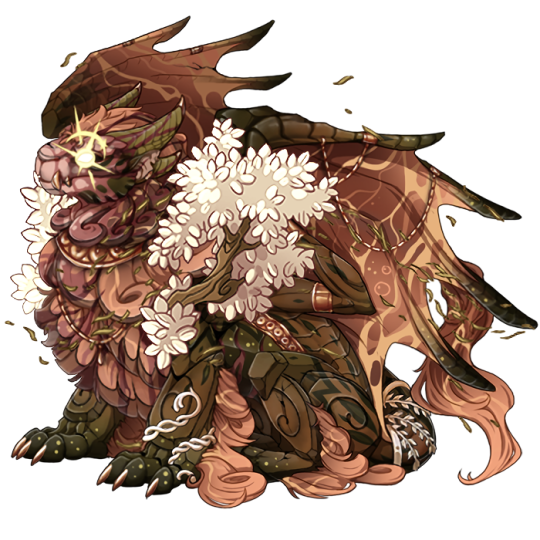#marmairo
Text


marmairo, the spotlight. fueled by a fragment of the sun itself, carved by chisel and blessed by tian.
#flight rising#frfanart#scribes#my art#obelisks#light primal#marmairo#i finished it today! i do not have that skin but i need it.....#the creator hasnt been active since 2021 and the skin was in preorder stage so idk if there are any even circulating :/#so the skin poll is like. alternates to this.
59 notes
·
View notes
Text
μαρμαίρω (marmairo) - an epithet of Aphrodite in Homer with the suggested meaning of "shining, sparkling, gleaming" in reference to her eyes.
#AFRODITA 🦢#LINGUA 📜#It is also a descriptor of Apollo's hair in Euripides' Ion: 'hair glittering with gold'#ancient greek language#greek mythology#greek gods#aphrodite#epithets
24 notes
·
View notes
Text
“The ancient Greek writers and artists imagined Aphrodite as the embodiment of the ideal of feminine beauty, as she both exhibits and exemplifies an incomparable loveliness that is utterly and inextricably fused with the nature of her divinity. Indeed, all the major Greek goddesses are portrayed as being beautiful in their physical appearance, and each one boasts particular features and diverse attributes that enhance her personal charisma: Artemis is distinguished by her height, Athena by her noble bearing, and Hera by her luminous skin (Friedrich 1978). But the standard Greek adjective used to designate what is “beautiful,” kale¯, belongs especially to Aphrodite. In the iconography of Greek art, cult, myth and literature, Aphrodite’s physical beauty is most often portrayed in terms of a “pre-maternal” womanhood: her body type is usually depicted as young, slim, fresh and rounded, that is, the female figure at the perfect peak of maturity, without the fuller, more nutritive features that tend to signify the mother goddess Demeter (Breitenberger 2007). . . . Aphrodite’s perfectly ripened beauty defines the essential, ideal moment in the representation of female physical excellence, as she embodies the epitome of what it means to be at the height of one’s powers of erotic attraction and allure.
Aphrodite’s image as the goddess of erotic beauty is explicitly supported by her appearances in early Greek poetry, where there emerges an almost voyeuristic interest in the specific characteristics of her awe-inspiring physicality. In the earliest poems and texts, the beauty of Aphrodite is described with careful attention to detail, and with overt references to the many glorious qualities of her physical attributes. If we understand the goddess’ frequent epithet philommeides in its traditional interpretation, then Aphrodite is customarily portrayed in the early texts wearing a smile, an alluring facial gesture that imparts both prettiness and sexual magnetism to her countenance: as Sappho describes the goddess’ chariot-drawn arrival, “with a smile on your immortal face” (poem 1).
The stunning Aphrodite is also often described in Greek poetry as having dazzling eyes, an exquisite-looking neck, and a lovely décolletage. These signature divine features, according to the poets, are so divinely radiant and so powerfully attractive, that a few perceptive mortals can immediately recognize them even when the goddess dons a disguise. This is exactly what Helen does in book 3 of Homer’s Iliad, when a cleverly camouflaged Aphrodite tries to lure the Spartan queen to join her lover, Paris, in bed. She [Helen] knew It was the goddess – the beautiful neck, The irresistible line of her breasts, The iridescent eyes. She was in awe... (Iliad 3.396–98, trans. Lombardo, 1997) Here, Aphrodite’s neck is “beyond beautiful” (perikalle¯s, 396); her bosom is so lovely that it “inspires himeros” or “longing” (himeroenta, 397); and her eyes literally “flash fire” (marmairo¯ , 397), a verb used by the Greek poets elsewhere to describe light glinting from metal (of Achilles’ new armor: Iliad 18.617), or the gleam of cosmic phenomena (of Zeus’ thunderbolt: Hesiod, Theogony 699). Thus Aphrodite’s beauty is made manifest by the poets in explicit textual description, while being revealed in terms of its effect on the observer: her supernatural beauty arouses desire in beholders and dazzles them with her sparkling divinity.
In book 18 of the Odyssey, Homer accentuates this tendency towards descriptive specificity in Aphrodite’s association to physical beauty, in an episode where Penelope, wife of Odysseus and queen of Ithaca, appears before the suitors. Although Penelope refuses her maid’s suggestion that she bathe and put on cosmetics to improve her good looks and thus impress the avid men gathered in her hall, the goddess Athena intervenes and beautifies the queen as she sleeps, by applying the “immortal beauty” (kallei . . . ambrosio¯ i, 192–93) that belongs to Aphrodite. Then the shimmering goddess [Athena] went to work on her [Penelope], So that all the men would gape in wonder. First she cleansed her lovely face, using The pure, distilled Beauty that Aphrodite Anoints herself with when she goes garlanded Into the beguiling dances of the Graces. Then she made her look taller, and filled out her figure, And made her skin whiter than polished ivory. (Odyssey 18.190–96, trans. Lombardo, 2000) It is unclear whether Aphrodite’s “immortal beauty” (192–93) referred to in this passage is meant to be the abstract concept of beauty, kallos, that the goddess readily bestows upon her favorites; or some more tangible substance, like a restorative balm or unguent, such as the “immortal oil” used by the Graces to anoint Aphrodite in her sanctuary at Cyprus before her seduction of the Trojan cattleman Anchises (elaio¯ i ambroto¯ i: Theogony 61–62): . . . However, Aphrodite’s “immortal beauty” appears to be something that can be borrowed, used and applied by others, as Athena does in this episode for the purpose of enhancing Penelope’s physical allure and to fill the suitors with sexual desire;”
- Monica S. Cyrino, Aphrodite
5 notes
·
View notes
Text



having a Lot of fun with these creatures
chisel || marmairo || tian






#frfanart#flight rising#my art#carver#marmairo#tian#aberrations#pearlcatchers#obelisks#my dragons#scribes
12 notes
·
View notes
Text



tian, the devourer. prophet of his order. carver--or rather, the only remaining head of carver, called chisel. right hand of the prophet. marmairo, the flooding light. one of many stone warriors created by chisel's claws and tian's magic.
12 notes
·
View notes
Text
an accent i thought was never printed / sold is on the auction house right now and its after i closed my account so i cant give it to marmairo
2 notes
·
View notes
Text

god if only this didnt cover its eyes ):
9 notes
·
View notes
Text






#shes like the first soldier construct of a group of fanatics that want to destroy the sun#so shes also got like a part of the sun inside her which is why she glows#flight rising#scribes#polls#obelisks#marmairo
9 notes
·
View notes
Text
me: i am too tired to run my kingdomlocke. i have to get these dragons out of my lair. free me.
also me: man i really like these 3 dragons i could start another kingdomlocke
#im not going to But i may level tian carver and marmairo together for warriors way#and dumi!!!!!! i need him to finally be 25.#scribes
1 note
·
View note